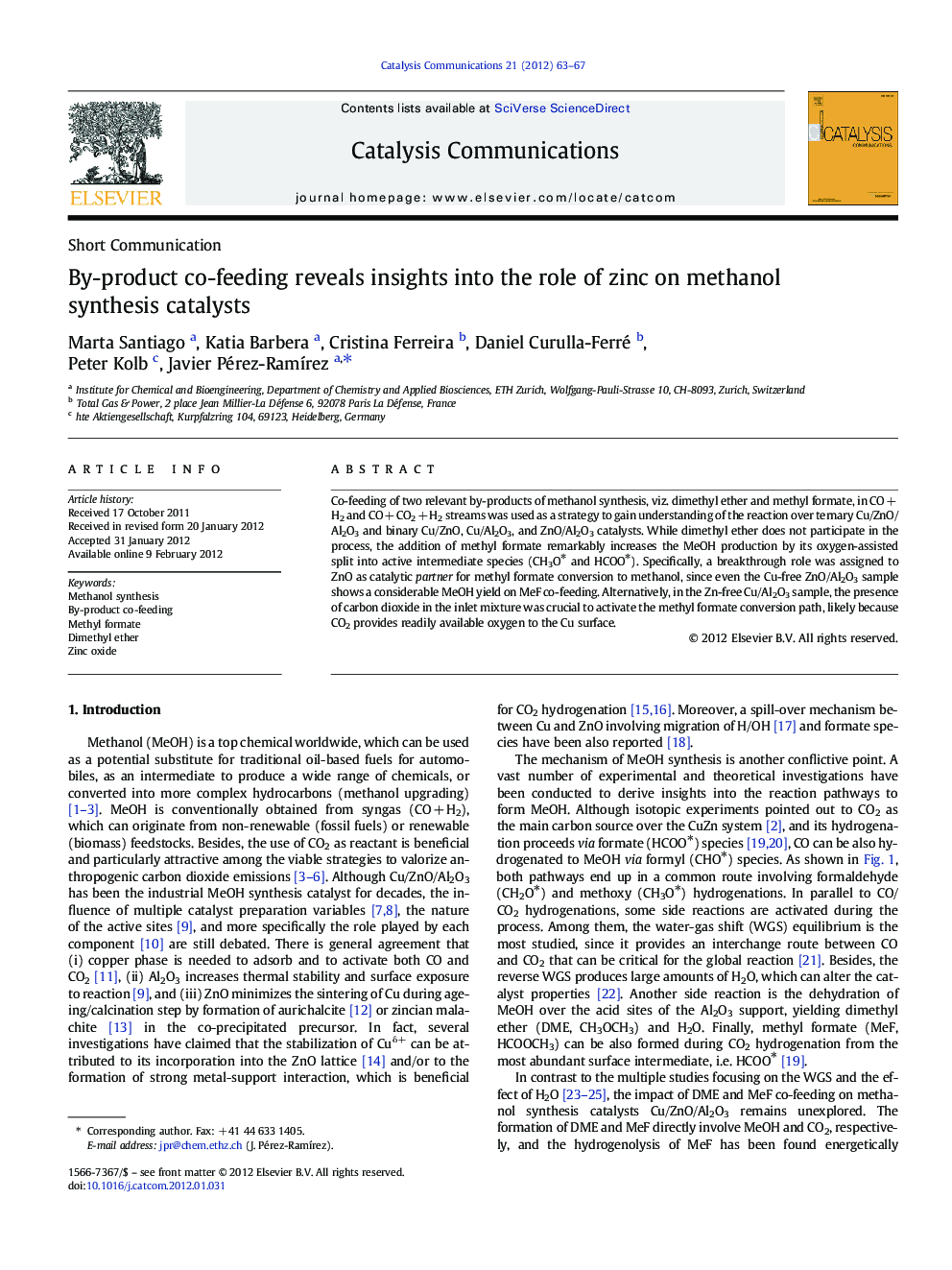| Article ID | Journal | Published Year | Pages | File Type |
|---|---|---|---|---|
| 50678 | Catalysis Communications | 2012 | 5 Pages |
Co-feeding of two relevant by-products of methanol synthesis, viz. dimethyl ether and methyl formate, in CO + H2 and CO + CO2 + H2 streams was used as a strategy to gain understanding of the reaction over ternary Cu/ZnO/Al2O3 and binary Cu/ZnO, Cu/Al2O3, and ZnO/Al2O3 catalysts. While dimethyl ether does not participate in the process, the addition of methyl formate remarkably increases the MeOH production by its oxygen-assisted split into active intermediate species (CH3O⁎ and HCOO⁎). Specifically, a breakthrough role was assigned to ZnO as catalytic partner for methyl formate conversion to methanol, since even the Cu-free ZnO/Al2O3 sample shows a considerable MeOH yield on MeF co-feeding. Alternatively, in the Zn-free Cu/Al2O3 sample, the presence of carbon dioxide in the inlet mixture was crucial to activate the methyl formate conversion path, likely because CO2 provides readily available oxygen to the Cu surface.
Graphical abstractCo-feeding of methyl formate in CO + H2 and CO + CO2 + H2 mixtures reveals that ZnO acts as catalytically active species for MeOH production.Figure optionsDownload full-size imageDownload as PowerPoint slideHighlights► Influence of by-product co-feeding on methanol synthesis catalysts is investigated. ► Dependence of feed and catalyst composition on methanol synthesis is rationalized. ► ZnO is identified as catalytically active species in the presence of methyl formate. ► CO2 is required to activate methyl formate split over the zinc-free catalyst.
